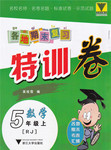题目内容
The central government is taking measures to ____ the prices of daily necessities.
A. put down B. turn down C. bring down D. take down

 各地期末复习特训卷系列答案
各地期末复习特训卷系列答案 小博士期末闯关100分系列答案
小博士期末闯关100分系列答案UNICEF is appealing for more than one billion dollars in aid for women and children around the world. The United Nations Children's Fund has released its “Humanitarian Action Report” for two thousand ten. The report lists twenty – eight countries and territories with some of the world’s most pester affecting women and children.
Haiti was considered to be in crisis long before the earthquake in January. The deputy executive director of UNICEF, Hilde Johnson, says the quake has only made the need for aid more immediate. But she says children all over the world have the right to the same assistance as children everywhere else.
The "Humanitarian Action Report" discusses several issues that UNICEF says increasingly threaten the basic rights of women and children. It says climate change has caused droughts and food insecurity in many areas. High food prices and the global financial crisis of two thousand eight-two thousand nine have only added to poverty and malnutrition (营养不良). And armed conflict continues to threaten the lives of millions.
Hilde Johnson says children are always the most affected by conflicts and disasters. They face an increased risk of abuse, including sexual violence and other serious rights violations(侵犯).
UNICEF deals with about two hundred emergencies around the world every year. The greatest need last year was in sub-Saharan Africa. The report says drought, food insecurity and civil unrest affected about twenty-four million people.
Violence and displacements of people were especially bad in Sudan, Chad, the Democratic Republic of Congo and the Central African Republic.
In Asia, UNICEF expects its financial assistance needs to more than double this year. This is partly the result of adding Pakistan and the Philippines to the latest report. In Pakistan, it says, more than two million people have been forced from their homes by the conflict in the Swat Valley and other areas of the northwest. And in the Philippines, more than two hundred thousand people are still living in shelters after severe storms last year.
This year's UNICEF report talks about the value of public and private partnerships in helping children and families in emergencies.
And that's the VOA Special English Development Report, written by June Simms. For a link to the UNICEF report listing the twenty-eight countries and territories in crisis, go to www.unsv.com. I'm Steve Ember.
1.According to Hilde Johnson, the most easily affected peens suffering from conflicts and disasters are .
|
A.women |
B.children |
C.the old |
D.the disabled |
2.From this passage we know that the most serious problems in Asia are .
|
A.earthquakes and malnutrition |
|
B.displacemerds, and storms |
|
C.seminal violence and other rights violations |
|
D.droughts and food insecurity |
3.By saying “… the quake has only made the need for aid more immediate.” Hilda Johnson probably intends to energy the idea that “ ”.
|
A.everything must have a beginning |
|
B.grass never grows where the wide blows |
|
C.cloudy herrings turn to clear evenings |
|
D.it never rains but pours |
4.Which of the following might serve as a suitable tickle for this passage?
|
A.Haiti was in crisis due to the earthquake in January. |
|
B.Violence in the twenty – eight countries and territories |
|
C.UNICEF Appeals for And for Women and Children |
|
D.the vatic of public and private partnerships in helping |